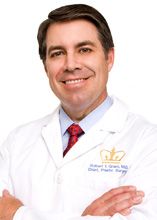Article
How to Help Your Patients Find the Perfect Plastic Surgeon
Author(s):
When prospective patients are contemplating cosmetic surgery, the first and most important step in their image enhancement journey is to find a plastic surgeon who is right for their desired procedure.

When prospective patients are contemplating cosmetic surgery, the first and most important step in their image enhancement journey is to find a plastic surgeon who is right for their desired procedure.
As we all know, selecting a surgeon is just as important and personal as choosing a primary care physician. Given the enormity and permanence of the outcome, it is imperative for patients to take the time to perform their own research in order to ensure they are choosing a plastic surgeon who will deliver the results they desire without sacrificing safety and standards.
When I speak with my prospective cosmetic patients, I always walk them through the following list of things to watch out for, which I feel will enable them to best determine the most appropriate cosmetic surgeon.
Expertise
This is perhaps the most important characteristic to consider while researching cosmetic surgeons. I feel strongly that patients should always make sure they are speaking with a board-certified plastic surgeon. The American Society for Aesthetic Plastic Surgery (ASAPS) and the American Society of Plastic Surgeons (ASPS) directories are excellent resources for our patients to use to find a trustworthy and qualified surgeon. As a member of both societies, I can honestly speak to the fact that these organizations are dedicated not only to the safety of patients, but also to the practice of aesthetic plastic surgery itself as both a science and an art.
Additional online tools to suggest to your patients are third-party doctor directory sites. They often feature information input by physicians themselves, but it is easily verifiable. Important statistics such as education, license number, years practicing, and hospital affiliations can be obtained from these sites. A few of the respected sites where I have my profile listed include:
- Vitals.com
- Healthgrades.com
- Healthcaremagic.com
- Ucomparehealthcare.com
Facility
Members of the ASPS have pledged to only operate in surgical facilities that are fully accredited. Having the privilege to admit patients and operate at a reputable hospital means the plastic surgeon has satisfied the credentialing committees of the institution, including the Medical Board and Board of Trustees.
Surgeons who do not have hospital privileges are not subjected to the same degree of peer review. Should a complication arise, it may be more difficult to coordinate the patient’s care with a hospital, which is something patients should absolutely consider when determining the right plastic surgeon for their procedure.
Consultation
Patients should always schedule a consultation appointment before undergoing any procedure, preferably with more than one surgeon. In the consultation appointment, I always speak with my patient about his or her surgical goals and expectations. It is essential for patients to have a clear and realistic understanding of the procedure, recovery time, and results. As medical professionals, we need to be upfront with our patients regarding postoperative expectations, since it will ensure their overall experience is positive.
--
Our patients must remember that they have plenty of time to consider their options when it comes to cosmetic surgery. After all, it is their body, health, and, ultimately, decision, which is what I stress in all of my consultation appointments.
Robert T. Grant, MD, MSc, FACS, is Chief of the combined Divisions of Plastic Surgery at New York-Presbyterian Hospital-Columbia University Medical Center and New York-Presbyterian Hospital-Weill Cornell Medical Center. He is also Associate Clinical Professor of Surgery in the College of Physicians and Surgeons at Columbia University and Adjunct Associate Professor of Clinical Surgery at Weill Cornell Medical College. For more information about Dr. Grant or to contact him, visit his website at www.robertgrantmd.com.





